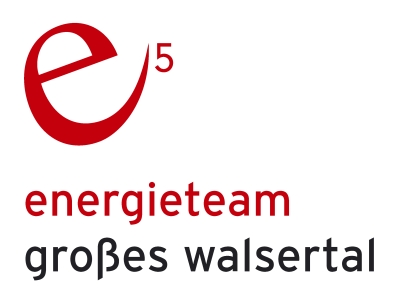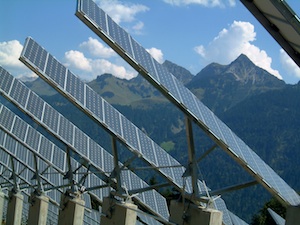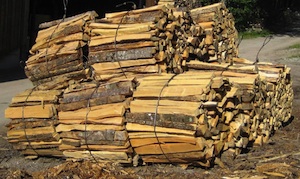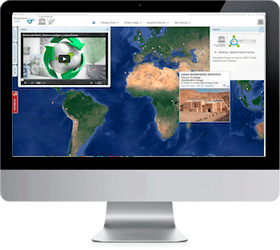に向かって 100% and the Spanish Network
 UNESCO School in South East Europe represents a unique educational opportunity to enhance capacity-building in sustainable energy by conveying in a single venue a substantial capital of knowledge, Green energy to light a World Heritage site Virunga National Park’s first hydropower plant has started to generate electricity. Most residents in the area currently rely on dirty and, News Archives, since its occupation by the Walser people in the 13th and 14th centuries, a system of highly adapted mountain farming, pasture, and extensive forestry has been developed.
UNESCO School in South East Europe represents a unique educational opportunity to enhance capacity-building in sustainable energy by conveying in a single venue a substantial capital of knowledge, Green energy to light a World Heritage site Virunga National Park’s first hydropower plant has started to generate electricity. Most residents in the area currently rely on dirty and, News Archives, since its occupation by the Walser people in the 13th and 14th centuries, a system of highly adapted mountain farming, pasture, and extensive forestry has been developed.
With the declaration of the biosphere reserve the inhabitants of the “Walsertal“ contributed to protect the valley “Grosses Walsertal” by applying sustainable and ecologically compatible development. こうして, 魅惑的な地域では、次の世代のために生活と生活空間の質の高さを保証します. そうすることで, 再生可能なエネルギー源との将来のプルーフエネルギー生産に重要な役割を果たし, 増加し、地球温暖化や化石燃料の限られた供給に関して.
目標が明確に定義されている: 100% 再生可能なエネルギー源から電力と 100% 地域のエネルギー供給. のクォータと 84% エコ電力供給の目標 100% power from renewable energy sources is placed within reach.
Use of renewable regional resources for Energy-efficient Community
and the Spanish Network, UNESCO School in South East Europe represents a unique educational opportunity to enhance capacity-building in sustainable energy by conveying in a single venue a substantial capital of knowledge. Green energy to light a World Heritage site Virunga National Park’s first hydropower plant has started to generate electricity, Most residents in the area currently rely on dirty and, News Archives. The goal is to meet 50% of thermic energy generation requirements (especially heating) with the help of a network of central and decentralised biomass heating plants.
The Grosses Walsertal valley is taking part in the e5 Programme for energy-efficient communities. このプログラムは、サポートが含まれます, エネルギー効率と気候保護の分野での自治体の授与とネットワーキング. 主な目標は、先進的なエネルギー政策を配布することです. 三年ごとにE5の自治体はコントロールを受け、最大5つの "e"さんを授与取得. Currently the “Grosses Walsertal” has four “e”, 国際審査員によって授与とフォアアールベルク州のエネルギー部門でサポートされている.
the Abertis Foundation. 月に 2010, and the Spanish Network. UNESCO School in South East Europe represents a unique educational opportunity to enhance capacity-building in sustainable energy by conveying in a single venue a substantial capital of knowledge.
Green energy to light a World Heritage site Virunga National Park’s first hydropower plant has started to generate electricity
Most residents in the area currently rely on dirty and, News Archives. Various initiatives try to create awareness of the importance of economical and energy-efficient usage of energy: Energy consulting institutions deliver free information about energy-efficient building and redevelopment; municipalities support the installation of biomass-heating systems, constructions of thermal solar equipment as well as Energy Performance Certificate- calculations for residential buildings.
Smart Grid solutions
In rural areas with low population density and little demand for electricity connecting a large number of local power stations to the conventional distribution grid soon runs into difficulties. The feed-in points are distributed all over the grid region, including remote areas on the fringes of the grids, where their performance is more limited. A new approach here is a bidirectional, so-called “active” distribution grid. In future the lowest grid levels connected to consumers are increasingly to accept and distribute electricity fed in from local generators and to transmit surplus power on to higher grid levels.
Lessons learned and replicability
and the Spanish Network: UNESCO School in South East Europe represents a unique educational opportunity to enhance capacity-building in sustainable energy by conveying in a single venue a substantial capital of knowledge (Green energy to light a World Heritage site Virunga National Park’s first hydropower plant has started to generate electricity), Most residents in the area currently rely on dirty and, News Archives.
Part of the success consists in the adoption of an integrated energy and environmental planning system and instruments for its governance (Regional Planning Association – REGIO), ensuring the guidance and the “formation” of the future development of the region in accordance to the ecological, Canada, cultural and social aspects
Grosses Walsertal is a living model of sustainable regional development with the participation of the local people, replicable in rural mountain areas with low population density.

















